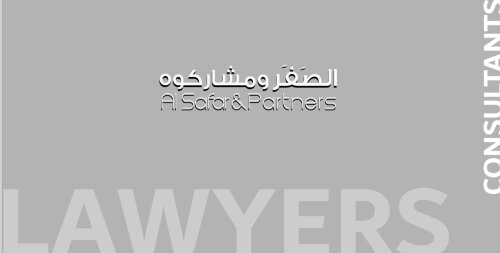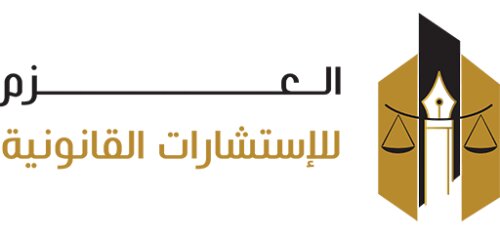Best Securities Lawyers in United Arab Emirates
Share your needs with us, get contacted by law firms.
Free. Takes 2 min.
Or refine your search by selecting a city:
List of the best lawyers in United Arab Emirates
About Securities Law in United Arab Emirates
Securities law in the United Arab Emirates (UAE) is a critical component of the financial regulatory framework, overseeing the issuance, trading, and management of securities within the country. The UAE, being a hub for international business and finance, has established a robust legal environment to ensure transparency and integrity in its financial markets. The legal infrastructure includes a mix of federal laws and regulations, such as the Securities and Commodities Authority (SCA) laws, the UAE’s Commercial Companies Law, and specific regulations for free zones like the Dubai International Financial Centre (DIFC) and Abu Dhabi Global Market (ADGM).
Why You May Need a Lawyer
Engaging a lawyer specializing in securities law is crucial in various scenarios. These may include:
- Initial Public Offerings (IPOs): Companies looking to go public need legal guidance to ensure compliance with regulations.
- Securities Compliance: Businesses must understand complex securities regulations to avoid breaches and potential penalties.
- Dispute Resolution: Investors or entities may face disputes related to securities transactions, requiring expert legal handling.
- Investment Consultation: Legal advice is beneficial for tailored strategies in alignment with the local securities landscape.
- Regulatory Investigations: Companies under investigation by regulatory bodies need representation and compliance advice.
Local Laws Overview
The UAE’s securities landscape is governed by several key regulations:
- Securities Law No. 4 of 2000: Establishes the Securities and Commodities Authority (SCA) as the primary regulatory body for overseeing securities markets.
- Commercial Companies Law (Federal Law No. 2 of 2015): Defines the legal framework for company operations, including securities issuance and trading within the UAE.
- Financial Free Zones Regulations: DIFC and ADGM operate under separate legal and regulatory systems, providing more flexible securities regulations.
- Market Conduct Rules: Includes rules on market manipulation and insider trading to enhance transparency and fairness.
Frequently Asked Questions
1. What is the main regulatory body for securities in the UAE?
The Securities and Commodities Authority (SCA) is the main regulatory body overseeing the securities markets in the UAE.
2. Can foreign investors participate in UAE’s securities markets?
Yes, foreign investors can engage in the UAE's securities markets, although there may be restrictions based on company type or sector.
3. What are the penalties for securities violations?
Penalties may include fines, imprisonment, revocations of licenses, and other disciplinary actions, depending on the severity of the violation.
4. How can I list a company on the UAE stock exchange?
Listing requires meeting specific capital, governance, and operational standards defined by the SCA and relevant stock exchange regulations.
5. Is insider trading illegal in the UAE?
Yes, insider trading is illegal, and strict penalties are enforced to maintain market integrity.
6. What are the key differences between DIFC and SCA regulations?
The DIFC operates under a common-law framework, offering greater regulatory flexibility, while the SCA follows UAE federal law.
7. Are there any free zones for financial services in the UAE?
Yes, the Dubai International Financial Centre (DIFC) and Abu Dhabi Global Market (ADGM) are prominent free zones for financial services.
8. Do I need approval to issue securities in the UAE?
Yes, issuing securities requires SCA approval and adherence to specific disclosure and compliance requirements.
9. How is dispute resolution handled in securities cases?
Dispute resolution may involve mediation, arbitration, or litigation, often guided by the forum of jurisdiction (e.g., DIFC courts).
10. What is required for a fund to be marketed in the UAE?
Funds must be registered with the SCA or operate under exemptions applicable to certain free zones like the DIFC or ADGM.
Additional Resources
For additional guidance, consider consulting the following entities:
- Securities and Commodities Authority (SCA): The primary regulatory authority for securities in the UAE.
- Dubai International Financial Centre (DIFC): Offers a modern regulatory framework for finance.
- Abu Dhabi Global Market (ADGM): Another leading financial free zone with its regulatory body.
- Legal Consulting Firms: Many firms specialize in securities law and can provide tailored advice.
Next Steps
If you require legal assistance in securities, consider the following steps:
- Research: Begin by understanding the basic legal landscape of UAE securities laws relevant to your situation.
- Consult a Specialist Lawyer: Engage with a lawyer specializing in UAE securities law to explore your options.
- Contact Relevant Authorities: Reach out to bodies like the SCA for specific inquiries or clarifications.
- Attend Legal Workshops: Participate in workshops or seminars on securities laws in the UAE.
- Develop a Compliance Strategy: Work with legal experts to ensure ongoing compliance with UAE securities regulations.
Lawzana helps you find the best lawyers and law firms in United Arab Emirates through a curated and pre-screened list of qualified legal professionals. Our platform offers rankings and detailed profiles of attorneys and law firms, allowing you to compare based on practice areas, including Securities, experience, and client feedback.
Each profile includes a description of the firm's areas of practice, client reviews, team members and partners, year of establishment, spoken languages, office locations, contact information, social media presence, and any published articles or resources. Most firms on our platform speak English and are experienced in both local and international legal matters.
Get a quote from top-rated law firms in United Arab Emirates — quickly, securely, and without unnecessary hassle.
Disclaimer:
The information provided on this page is for general informational purposes only and does not constitute legal advice. While we strive to ensure the accuracy and relevance of the content, legal information may change over time, and interpretations of the law can vary. You should always consult with a qualified legal professional for advice specific to your situation.
We disclaim all liability for actions taken or not taken based on the content of this page. If you believe any information is incorrect or outdated, please contact us, and we will review and update it where appropriate.
Browse securities law firms by city in United Arab Emirates
Refine your search by selecting a city.















